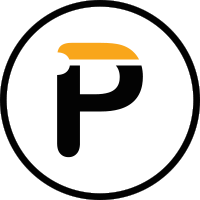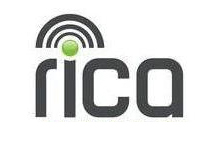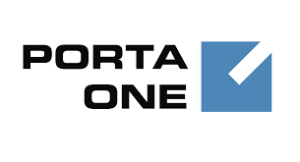.png?width=900&name=What%20you%20should%20demand%20from%20a%20Telephone%20Management%20System%20(2).png) Gain more control over incoming and outgoing calls with call barring.Installing a telephone and giving it to employees to use can bring about anxieties. Sure, they need it to work and stay in touch, but what stops things from getting out of hand? What if employees call personal numbers or use the business phone to make international or premium rated calls? What if they are not dialling out to clients but are receiving calls from friends during work hours? How much of the phone bill is due to work-related phone calls?
Gain more control over incoming and outgoing calls with call barring.Installing a telephone and giving it to employees to use can bring about anxieties. Sure, they need it to work and stay in touch, but what stops things from getting out of hand? What if employees call personal numbers or use the business phone to make international or premium rated calls? What if they are not dialling out to clients but are receiving calls from friends during work hours? How much of the phone bill is due to work-related phone calls?
The list of scenarios of how employees can misuse a phone is long. But the solution is simple. It's called call barring.
What is call barring?
Call barring is a telephony service that gives you control to either open or close your telephone line. The business uses a web interface that manages the controls, restrictions and PIN codes. You can set up the line to only receive or dial out to any number or restrict it to national calls, cellular phones or calls to SADC countries and international markets. You can essentially bar specific types of numbers from being called, using your line. Call barring is a structured and planned restriction that can be applied company wide.
How can call barring be used?
Call barring is a versatile service. Some use cases are:
- Access control: Call barring is useful for limiting access within a complex. For example, a security guard from a residential complex would utilise call barring for restricted dialling of residents and emergency services. It can also be used within the entrance gate station, which allows calls to predetermined numbers and controls access in this way to authorised entrances. Gate stations can also be programmed to call cell phone numbers for access control.
- Staff control (spend): Call barring can help to reduce telephone costs. For example, the business can prohibit some identified staff from calling specific numbers, whereas the company can enable other employees or departments within the same company to call these number ranges.
- Security and risk management: Businesses can use call barring as a stop-gap should malicious actors hack into the company's network. Often these hackers access the company's telephone system and dial premium numbers to certain destinations to generate income for themselves at the company's expense.
Any company can benefit from the use of call barring, for example:-
- Security companies and control rooms: security needs to be in constant communication within the team and the complex, along with having access to emergency numbers.
- Inbound service centres: some departments or companies cannot operate without telephones, but they need control measures, or costs will go out of hand. For example, a call centre needs telephones to receive calls from customers, but if the hundreds of agents are not barred from making outbound calls, then the call centre will end up with a huge phone bill or wasted time.
- Mobile users: while roaming outside of the country, the business can limit incoming or outgoing calls to control spending.
How can call barring be set up:
The business can set up call barring several ways, such as:
- A system-wide barring can be set up on the organisation's telephone system, depending on your PBX solution and product plan.
- Your provider may provide a list of options from which to select. This is what most onsite PBXs offer, while a cloud PBX has more options than an onsite PBX.
- Depending on your system or provider, call barring could be customisable. So you can determine what works for your business.
Most clients prefer to have full control over call barring rather than be forced into a standard pre-built system that does not allow any customising.
Often, there will be a range of call barring options available. They operate by indicating which numbers are 'allowed'. Such as:
- A specified list of numbers
- All extensions on a PBX
- Fixed lines or numbers
- All national numbers
- Specific geographies; such as SADC, European and North American Countries
- Emergency numbers
The following destinations are often excluded from your dialling plan because they seem be prone to fraud, based on the calling number:
- High-risk countries that are known hacker hotspots.
- Countries that allow premium numbers, calls that are around R5 - R50 per minute. These premium numbers are country dependent.
- Numbers that are invalid (not in a standard format).
- Unallocated (not assigned to a telecom operator.
- Unassigned (not in use with a customer).
- Do-Not-Originate (subscriber has confirmed the number is not used for outgoing phone calls).
Call barring and your business:
Call barring is something that an organisation needs to be thoroughly discussed before its approval. It's adoption, setup and administration are heavily reliant on the business' culture, operations, and staff. All of these factors have to be considered, along with the business's goals.
Call barring needs to be applied in line with your objectives, especially from the perspective of your staff. A defined culture and method need to be established beforehand, and your call barring decisions need to support your vision and not create internal complications, which could affect the business or reputation negatively.
Call barring is useful for controlling telephone expenses, but it may not be for everyone or business. Luckily there are other options available such as implementing a TMS (Telephone Management System). Expenditure can be controlled from an internal perspective through a TMS. It is also possible to manage your internal and external risks by using call barring and a TMS in conjunction with each other. Call barring decisions need to be made and balanced while considering productivity, expense control and risk management.
To discuss personalised business solutions, get in touch with us at Premitel today.







